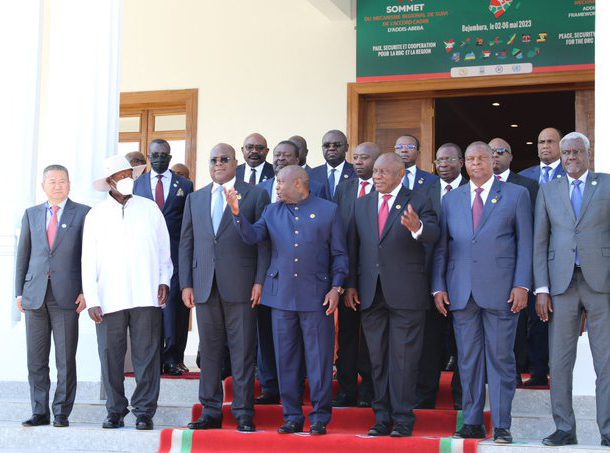APA-Harare (Zimbabwe) An unmistakable feeling of déjà vu is in the air following the conclusion of another meeting of parties to an international accord to resolve long-running security challenges in the Democratic Republic of Congo (DRC) and Great Lakes region.
The 11th High Level Segment of the Regional Oversight Mechanism of the Peace, Security and Cooperation (PSC) Framework for the DRC and the Great Lakes Region concluded in the Burundian capital Bujumbura on May 6, with yet another communique issued and leaders pledging commitment to see an end to the conflict in the restive eastern DRC and neighbouring countries.
The PSC Framework was signed on 24 February 2013 through an African Union and United Nations-brokered agreement aimed at stabilising the DRC.
Signatories to the agreement are Angola, Burundi, Central African Republic, Republic of Congo, DRC, Kenya, Rwanda, South Africa, South Sudan, Sudan, Tanzania, Uganda and Zambia.
However, despite the decade-long commitment by these countries – with support from the AU, UN and regional blocs such as the East African Community and the International Conference on the Great Lakes Region – there has been very little progress on resolving the DRC conflict.
M23 rebels continue to wreak havoc in eastern DRC, together with other foreign and local armed groups such as the Allied Democratic Forces (ADF)-Madina at Tauheed Wau Mujahedeen (MTM), Democratic Forces for the Liberation of Rwanda (FDLR), Resistance for the Rule of Law in Burundi (RED Tabara) and the Mai Mai.
The complexity of the conflict was one of the issues the Bujumbura summit tried to tackle, with South Africa’s President Cyril Ramaphosa expressing concern at the deteriorating situation.
“The current security situation in the eastern DRC requires our urgent attention. Over the past year, a humanitarian catastrophe has unfolded before our eyes,” he said.
Ramaphosa said more than 800,000 people have been displaced by the conflict in the past year, and most of the victims were women and children who have been abused by both Congolese and foreign fighters.
He bemoaned the apparent lack of movement 10 years since the PSC Framework was signed.
“We cannot but be moved by their (people’s) plight – and by the gross violations of human rights that are taking place in the area,” Ramaphosa said.
He added: “We cannot but be outraged at the scale of violence being perpetrated against women and girls, and by the blatant disregard of the provisions of international humanitarian law.”
The South African leader said actionable decisions were need to be taken to address the shortcomings emanating from the framework not being implemented.
“It is critical that all parties to the framework demonstrate the highest political will, and reaffirm their commitment to its successfully implementation,” he said.
Begs the question – is this the last summit leaders of these countries and organisations to discuss the security situation in eastern DRC or another 10 years will pass and the same issues still be on the agenda?
Observers say the question of security in the mineral-rich eastern DRC is a complex one that involves an invisible third force and requires a meeting of more than the country’s immediate neighbours.
“What is needed is a real international conference convened by the UN at which the issue of the DRC will be discussed, including addressing the contentious issue of the invisible third force,” Harare-based political analyst Donald Porusingazi said.
He likened current attempts to resolve the DRC crisis to a situation where “a group of glorified neighbourhood elders convene a meeting to discuss a case of infidelity involving one of the people in the area, but they leave out one of the allegedly adulterers.”
“We will still be talking about the crisis in eastern DRC for the next 300 years unless we take a different approach to how we address the issues at hand.”
JN/APA


